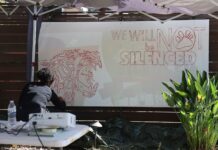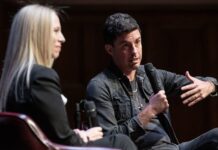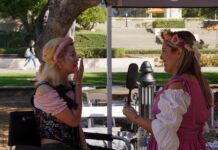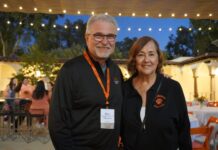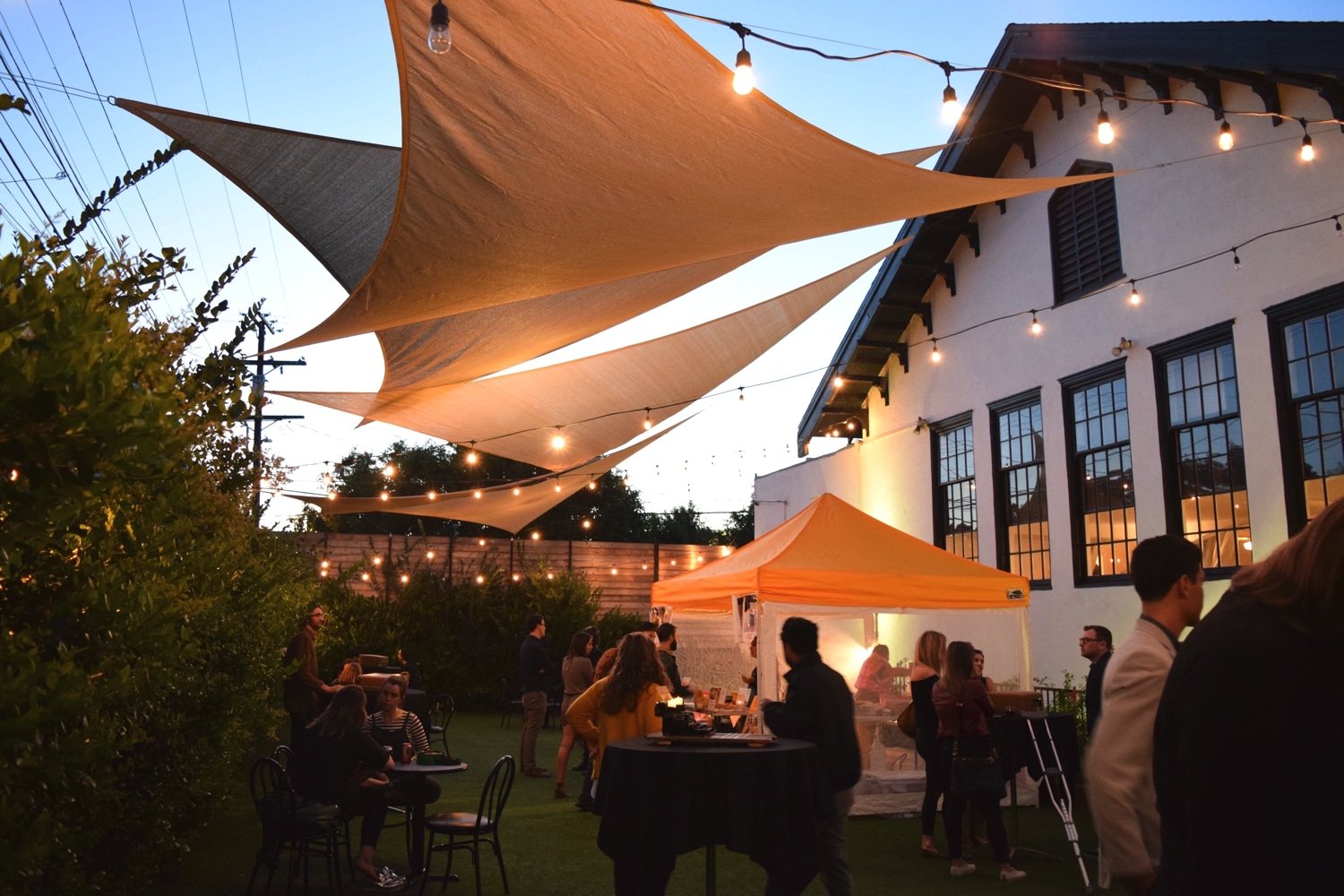
At the York Manor
Were the Haiku Guys and Gals
April 26.
The Haiku Guys and Gals hosted their first Los Angeles Haiku Duel in The York Manor of Highland Park, featuring haikus far more impressive than the one featured above. A Haiku Duel is an NCAA-bracket-style Haiku tournament that is equal parts dance party, poetry slam and improvisational comedy. After attracting significant attention in New York, The Haiku Guys and Gals decided to bring their battle on a nationwide tour, allowing people all across the country to compete for the $500 cash prize, shout out haiku topics, observe, applaud and dance. The first 16 attendees to sign up as duelers competed with a total of 17 syllables per person. Audience applause and enthusiasm determine a winner, according to original Haiku Gal Lisa Ann (LA) Markuson, co-founder, co-owner and managing director.
“It’s the best event for someone who barely thinks that they could possibly be interested,” Markuson said. “They wouldn’t necessarily go to a poetry reading but they’re open to doing something that’s a little more intellectual, a little more active in their mind as opposed to just being a passive consumer of entertainment. It’s just a step above a typical party that you would go to on any night. That next level of actually thinking creatively without having to necessarily be put on the spot or onstage.”
The York Manor was nearly filled to capacity. Musical performances by the Hi Fi Honeydrops, Novena Carmél, Lena Chanel and JandTree provided a soundtrack for the two-minute dance breaks interspersed between haiku rounds, allowing duelers time to compose.
Markuson and co-founders Erick Szentmiklosy and Daniel Zaltsman discussed how the Haiku Guys and Gals came to be, long before their days of dueling. Szentmiklosy and Zaltman met during first-year orientation at Montclair University and have been creative partners ever since. After graduation, they worked on a project in Brooklyn that involved interviewing entrepreneurs on the street. The project involved writing free, customized haikus — Japanese poems first popularized in the 17th century — on typewriters as an incentive for participation. An organizer of Wanderlust Yoga Festival recruited them off the street to write haikus for their festival, which Markuson happened to be hitchhiking to from graduate school in Washington D.C. She had also been working on art installations involving haikus on typewriters, so the connection felt serendipitous, according to Markuson.
“[Szentmiklosy and Zaltsman] gave me a ride back to New York, convinced me to move to New York, convinced me to drop out of grad school, I got a job in New York and the rest is history,” Markuson said.
Markuson spoke to the name “The Haiku Guys and Gals” — both how it came to be, and how they are not married to this title.
“Haiku Guys is just what people have called us for forever,” Markuson said. “We’d show up and people would say, ‘Hey the Haiku guys are here!’ But it’s actually a name we aren’t very connected to, it was so accidental.”
The group is in the process of rebranding as the Haiku Studio in order to create a non-gendered and cohesive organization, according to Markuson. The three founders work closely with 35 independently contracted poets who Markuson described as an Avengers-style team, each representing unique skill sets, writing styles and backgrounds. All of the contributing poets, as well as the founders, come from various backgrounds of poetry. Haikus stood out to the Haiku Guys and Gals as an effective form of poetry for reaching as many people as possible.
Not only do the Haiku Guys and Gals host duels, but in collaboration with their team of poets, they write customized haikus at parties and events. The team also created “102 Haiku,” a structured journal for expression through haiku. The journal includes prompts for haikus and examples from contributing poets.
“80 percent of people we encounter know what a haiku is, but none of them have been offered a free one before,” Szentmiklosy said. “So something about it being both familiar and unfamiliar creates this curiosity that makes them want to learn more.”
Zaltsman appreciates the ways in which haikus have allowed the organization to connect with a wide scope of people and create opportunities for their team.
“We have a range of ages as well, people are supportive, people are using this also as a way to support their families and support themselves,” Zaltsman said. “It feels really good when we can actually offer gigs, and the more popular we get the more opportunities we’re able to offer poets.”
All three founders expressed the benefit of haiku’s short format: five syllables in the first line, seven syllables in the second and five syllables in the third.
“We call it a photo booth for your soul,” Szentmiklosy said. “It’s like taking a quick little snapshot of a moment or a thought or a feeling, and it’s like a substitute for a photograph.”
Szentmiklosy described the qualities that make a strong haiku.
“A good haiku is all about the vibe,” Szentmiklosy said. “It’s all about being able to jump into joy, then completely let it go and be a blank slate for whatever the next person comes in with.”
Markuson echoed his sentiments.
“It’s hella zen,” Markuson said. “You also want to surprise someone a little bit. If you give them a little image or a little turn of phrase that’s gonna surprise them they’re going to have an actual physical response in their brain that’s like a pleasing response.”
Szentmiklosy, Zaltsman and Markuson had advice for aspiring poets at Occidental and beyond. Szentmiklosy advised incessant writing, straying from poetry norms and creating a unique platform on which to share it. Zaltsman recommended turning to nature, which he said holds all answers, to overcome writer’s block. Markuson listed a willingness to sacrifice and honesty as important qualifications for all poets.
“Read and absorb everything in as diverse a way that you can. You can only tell the truth and speak about what you know,” Markuson said. “If you try to do anything else you will sound like an asshole.”
![]()


